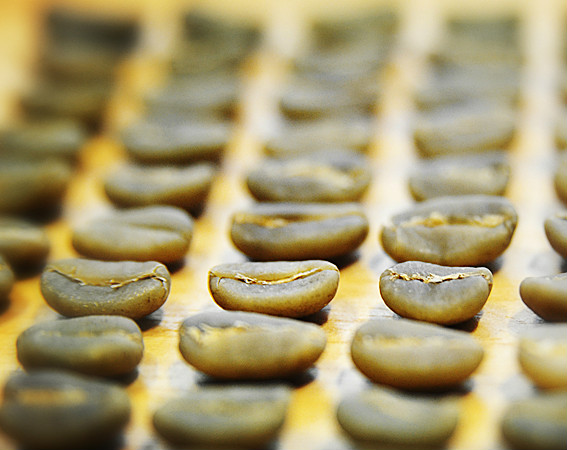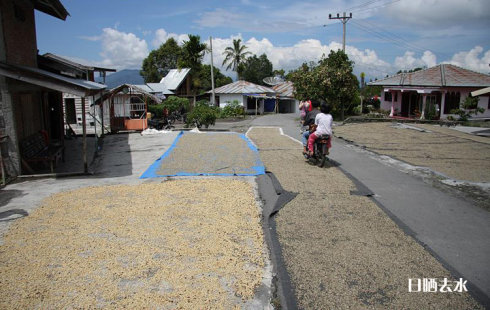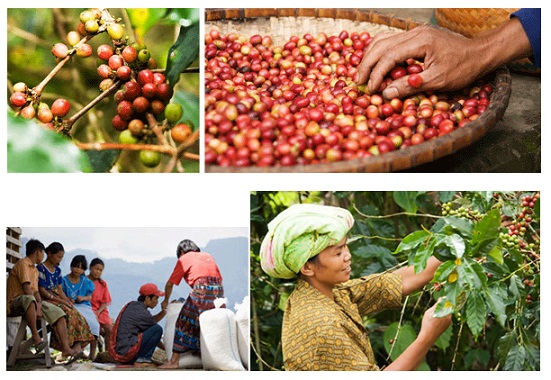Colombia Coca wants the manor to be sunburned. Is the geisha Robusta or Arabica?
Global coffee bean tree species are mainly divided into: Arabica and Canephora, of which Arabica coffee beans account for more than 100 coffee varieties of 70%-80%coffee. The more common coffee is Arabica Arabica, with outstanding personality and unique flavor, which is the main force of boutique coffee, mainly used in coffee shop management and high-end coffee market supply. Robusta Robusta, with rough flavor and high caffeine content, is not a boutique coffee. It is often used in instant coffee processing and Italian coffee mixed beans.
Ethiopian Typica and Yemeni Bourbon are the oldest coffee varieties known so far. Many Arabica variants have been derived after they were transplanted from the country of origin to Central and South America and Asia. The small seed coffee cultivated in Yunnan, China is one of the Typica variants, and there are Bourbon variants in other regions.
Iron pickup "Typica" iron pickup, the name sounds majestic, but in fact it is not so strong. It has weak physique, poor disease resistance, easy to catch rust leaf disease and less fruit yield. It is one of the oldest native varieties in Ethiopia, and many Arabica are derived from iron pickups!
The parietal leaf of the iron pickup is bronzed, and the bean grain is large, pointed, oval or thin. Everyone is familiar with the well-known Mantenin, Blue Mountain, Elephant Bean, Kona, Yunnan Dou …... Wait. They are all derived from iron pickups.
Bourbon "Bourbon" bourbon is an ancient and excellent variety juxtaposed with iron pickup, and some botanists believe that bourbon is an early variety of iron pickup transplanted to Yemen.
Geisha / Geisha: a derivative of the Tibika family, it was exported from the Geisha Mountains of southern Ethiopia in 1931 (Geisha is synonymous with Japanese geisha). It was unknown in many countries and was transplanted to Panama in the 1960s and did not begin to win cup tests until 2005.
Country: Colombia
Grade: AATOP
Producing area: Cauca Valley
Altitude: 1800 m
Treatment: insolation
Variety: Rose summer
Manor: hope Manor
Flavor: berries, honey, vanilla, sweet juice
According to the Panamanian Emerald Manor website, "Rose Summer" coffee seeds were taken from GeishaMountain (Mount Rosa) in southwestern Ethiopia in 1931, transplanted to Kenya in 1931 and 1932, replanted in Tanzania in 1936 and introduced to Costa Rica in 1953. It is unknown when they will be introduced to Jaramillo Manor in Panama. After the PricePeterson family, who only knew the Emerald Farm (HaciendaLaEsmeralda) of Panama, bought the Galamie Manor in 1996, they found that the coffee flavor on the edge of the estate was unique, so they took part in the 2004 Panama "COE" competition, never wanted to become famous, and won awards almost every year since. Later, it was identified that the variety originated from Ethiopia's "Rose Summer Mountain", so it was called "Rose Summer" coffee. Panamanian Rosa coffee once fetched a sky-high price of nearly $290 per kilogram.
The Herrera family of Hope Farm in Colombia introduced Rose Summer Coffee from Jade Manor in Panama in 2007, but after years of trial efforts, it won the first prize in the American Fine Coffee Association's Annual Bean Competition (COTY-CoffeesoftheYear) in Houston in April 2011.

Important Notice :
前街咖啡 FrontStreet Coffee has moved to new addredd:
FrontStreet Coffee Address: 315,Donghua East Road,GuangZhou
Tel:020 38364473
- Prev

Iron pickup or bourbon? Iron pickup coffee beans iron pickup coffee beans price Guatemalan coffee beans roast
Iron pickup "Typica" iron pickup, the name sounds majestic and powerful, but in fact it is not so strong. It has a weak physique, poor disease resistance, easy to catch rust leaf disease, and produces less fruit. It is one of the oldest native varieties in Ethiopia, and many Arabica are derived from iron pickups! The parietal leaf of the iron pickup is bronzed, and the bean grain is large, pointed, oval or thin.
- Next

Columbia Coca Hope Manor Iron pickup or Bourbon? Iron pickup coffee beans
Iron pickup "Typica" iron pickup, the name sounds majestic and powerful, but in fact it is not so strong. It has a weak physique, poor disease resistance, easy to catch rust leaf disease, and produces less fruit. It is one of the oldest native varieties in Ethiopia, and many Arabica are derived from iron pickups! The parietal leaf of the iron pickup is bronzed, and the bean grain is large, pointed, oval or thin.
Related
- Detailed explanation of Jadeite planting Land in Panamanian Jadeite Manor introduction to the grading system of Jadeite competitive bidding, Red bid, Green bid and Rose Summer
- Story of Coffee planting in Brenka region of Costa Rica Stonehenge Manor anaerobic heavy honey treatment of flavor mouth
- What's on the barrel of Blue Mountain Coffee beans?
- Can American coffee also pull flowers? How to use hot American style to pull out a good-looking pattern?
- Can you make a cold extract with coffee beans? What is the right proportion for cold-extracted coffee formula?
- Indonesian PWN Gold Mandrine Coffee Origin Features Flavor How to Chong? Mandolin coffee is American.
- A brief introduction to the flavor characteristics of Brazilian yellow bourbon coffee beans
- What is the effect of different water quality on the flavor of cold-extracted coffee? What kind of water is best for brewing coffee?
- Why do you think of Rose Summer whenever you mention Panamanian coffee?
- Introduction to the characteristics of authentic blue mountain coffee bean producing areas? What is the CIB Coffee Authority in Jamaica?

